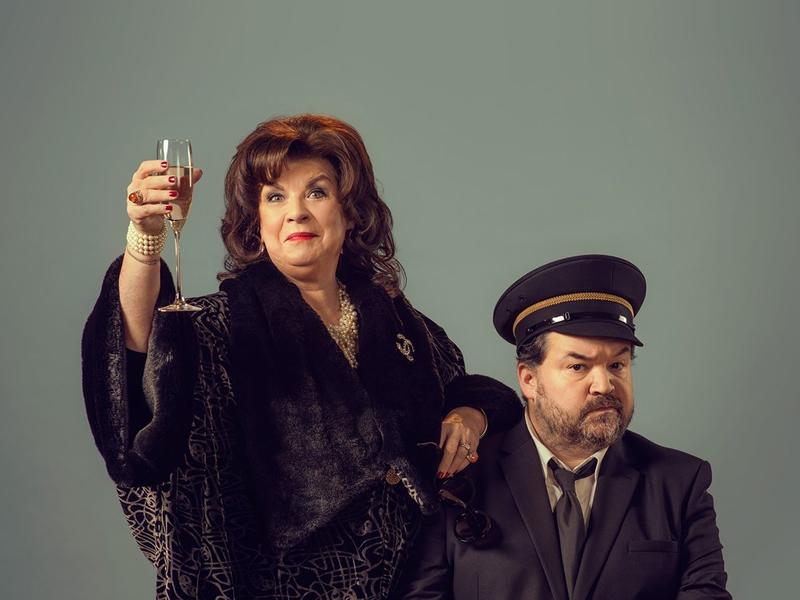The latest production at the Royal Lyceum, Mrs Puntila and Her Man Matti, is packed to the gunnels with promise. It is an adaptation of a Bertolt Brecht play by Scottish prize-winning crime novelist, Denise Mina. It is directed by Murat Daltaban of Istanbul’s DOT Theatre, who brought the brilliant and award-winning Rhinoceros to the Lyceum stage in 2017. It has live music and sounds from composer Oguz Kaplangi, and it stars two of Scotland’s leading comic actors: Elaine C. Smith and Steven McNicoll. So what went wrong?
Brecht’s play, first performed in Zurich in 1948, is a comic satire on the corruptive traits of class and wealth, with a male protagonist at its centre. Mina has switched the gender of Mr Puntila to remove the predatory sexual nature of the original male character. On a bottle-strewn stage, Smith is the booze-loving, nouveau riche landowner, Mrs Puntila who wants to marry her daughter Eva (Joanne McGuinness) to a local attaché (Richard Conlon), in the age-old story of new money (loaded) marrying into old money (skint). When Puntila is bevvied, she makes herself likeable by making wild offers of employment with fantastic conditions to desperate people at an anachronistic hiring fair. In sobriety, she is a hard-headed, weapon-wielding harridan with no memory of her philanthropy, who slips into old plantation-owner mode by calling her chauffeur Matti (McNicoll) ‘Boy’. While the audience never learn how she comes to own several mills, a forest and ‘hauf o Argyll’, what is clear is that even in her apparent kinder moments, it is always her way or the highway.
Bathed in a red glow, the opening scene holds promise with, in true Brechtian style, the story’s narrative being told in song; but after that things start to slip. A series of anecdotes delivered by the cast playing oppressed workers make political points on issues like the long term burden of student debt; the problems of being an immigrant worker; the pressures of being a care worker, and the thorny issues of tax avoidance and charity. Despite the earnestness and validity of the points made, they come across as being delivered heavy-handedly, with Mina’s astute ear for dialogue lost in the mire of heavy handed sloganising.
Certainly, the dichotomy of the Scots psyche and Scotland’s uneasy relationship with land ownership are important topics to be addressed in a serious way. Brecht was didactic, but this production takes the style to another level that ironically serves to dilute these critical subjects. This is particularly evident in the final, cringe-worthy scene where Mrs Puntila, and indeed her man Matti, take a schmaltzy dewy-eyed look at Scotland’s landscape.
Kaplangi’s provision of thrumming and immaculately timed sounds, like in the bizarre badminton game, is a pleasant bonus in this over-long show that could have been cut with the callousness of the bossman from one of the show’s anecdotes, who cut his employees’ money when they actually achieved what he bribed them to do.
The redoubtable McNicoll is the show’s saving grace, as he brings his easy manner and natural comedic skills to the role of Matti. After the delivery of a limerick, he turns apologetically to the audience and breaks that fourth wall saying what could be considered prophetic: “It’s a work in progress”.
